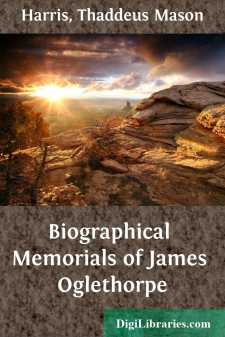Categories
- Antiques & Collectibles 13
- Architecture 36
- Art 48
- Bibles 22
- Biography & Autobiography 813
- Body, Mind & Spirit 142
- Business & Economics 28
- Children's Books 15
- Children's Fiction 12
- Computers 4
- Cooking 94
- Crafts & Hobbies 4
- Drama 346
- Education 46
- Family & Relationships 57
- Fiction 11828
- Games 19
- Gardening 17
- Health & Fitness 34
- History 1377
- House & Home 1
- Humor 147
- Juvenile Fiction 1873
- Juvenile Nonfiction 202
- Language Arts & Disciplines 88
- Law 16
- Literary Collections 686
- Literary Criticism 179
- Mathematics 13
- Medical 41
- Music 40
- Nature 179
- Non-Classifiable 1768
- Performing Arts 7
- Periodicals 1453
- Philosophy 64
- Photography 2
- Poetry 896
- Political Science 203
- Psychology 42
- Reference 154
- Religion 513
- Science 126
- Self-Help 84
- Social Science 81
- Sports & Recreation 34
- Study Aids 3
- Technology & Engineering 59
- Transportation 23
- Travel 463
- True Crime 29
Biographical Memorials of James Oglethorpe
Description:
Excerpt
CHAPTER I.
Parentage of Oglethorpe—Birth—Education—Christian Name—Education—Military Profession and Promotion—In the Suite of the Earl of Peterborough—Service under Prince Eugene of Savoy—Elected Member of Parliament—Visits a Gentleman in Prison—Moves in the House of Commons for a redress of the rigors of Prison Discipline—Appointed on the Committee—Extracts from his Speeches in Parliament.
James Oglethorpe, founder of the Colony of Georgia in North America,—a distinguished philanthropist, general, and statesman,—was the son of Sir Theophilus Oglethorpe, of Godalming, in the County of Surrey, Great Britain, by Eleanor, his wife, daughter of Richard Wall, Esq. of Rogane, in Ireland.[1] There has been, hitherto, great uncertainty with respect to the year, the month, and the day of his nativity; I have, however, what I deem good authority for deciding it to have been the twenty-first day of December, one thousand six hundred and eighty-eight.[2]
[Footnote 1: For some account of the Family, see Appendix I.]
[Footnote 2: Appendix II.]
It is asserted in Thoresby's History of Leeds, page 255, that "he had two Christian names, James-Edward, supposed to have been bestowed upon him in compliment to the Pretender;" and he is so named on his sepulchral monument. But, as he always used but one; as he was enregistered on entering College at Oxford, simply James; and, as the double name is not inserted in any public act, commission, document, printed history, or mention of him in his life time, that I have ever met with, I have not thought proper to adopt it.
When sixteen years of age, on the 9th of July, 1704, he was admitted a member of Corpus Christi College, Oxford,[1] where his brother Lewis received his education. It seems, however, that, after the example of that brother, as also of his brother Theophilus, he early relinquished a literary, for a military profession; and aspired to make his way in the world, "tam Marte quam Minerva."
[Footnote 1: The record of his admittatur, in the University Register, is,—"1704, Jul. 9, term. S. Trin. Jacobus Oglethorpe, e C.C.C. 16. Theoph. f. Sti. Jacobi, Lond. Equ. Aur. filius natu minor." That is, "In Trinity Term, July 9, 1704, James Oglethorpe, aged 16, youngest son of Theophilus Oglethorpe, of St. James's, London, was admitted into Corpus Christi College."]
His first commission was that of Ensign; and it is dated in 1710; and he bore that rank in the army when peace was proclaimed in 1713[1]. In the same year he is known to have been in the suite of the Earl of Peterborough[2], ambassador from the Court of Great Britain to the King of Sicily and to the other Italian States; whither he was fellow traveller with the Rev. Dr. George Berkeley, his Lordship's Chaplain[3]. Highly honorable was such a mark of favor from his Lordship; and peculiarly pleasant and instructive, also, must have been such companionship with the amiable and excellent clergyman; and it afforded opportunity of concerting plans of usefulness, of beneficence, and of philanthropy, the object and tendency of which were apparent in the after life of each[4]....


